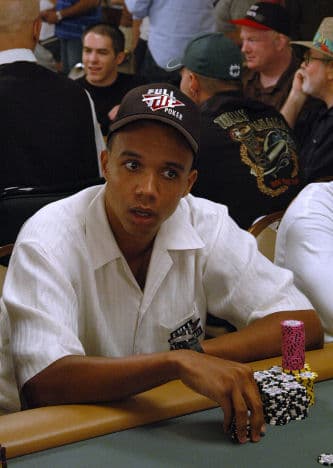Phil Ivey is undoubtedly one of the best poker players in the world, having won 10 World Series of Poker bracelets and earned over $30 million in tournament winnings. However, in 2012, Ivey became embroiled in a major scandal involving the card game Baccarat that called his ethics into question. While some claim Ivey cheated the casino through his techniques, most poker pros stand behind Ivey as just a brilliant strategic player.
Ivey’s Edge Sorting Baccarat Scheme
In 2012, Ivey visited the Borgata Hotel Casino in Atlantic City, where he played Baccarat accompanied by an associate named Cheung Yin Sun. They arranged special conditions with the casino ahead of time, requesting a private table and asking the dealer to flip certain cards in particular ways.
Over four visits, Ivey won a total of $9.6 million through these Baccarat sessions. But what was Ivey up to exactly? He was employing a technique known as “edge sorting” which exploits minor flaws on the card backs to figure out their values. Ivey requested special purple Gemaco cards whose backs had a small imperfection. Turning the cards slightly allowed him to sort and track the values.
The Borgata Lawsuit and Court Rulings Against Ivey
Once the Borgata realized what had happened, they sued Ivey to recover the $9.6 million. Judges ruled that Ivey had used deceptive means which violated Baccarat rules, even though his edge sorting was skillful and not illegal per se.
Ivey appealed the decision all the way to the Supreme Court but ultimately lost. The courts stuck to the letter of the law, arguing Ivey had manipulated the conditions of the game unfairly. But among poker experts, the consensus seems to be that while devious, Ivey’s plan did not constitute actual cheating or fraud.

Ivey’s Defense and Arguments from the Poker Community
Ivey has maintained that he simply used intelligent observation to gain an advantage, as skilled gamblers have done for ages. He likened it to card counting in Blackjack. Many poker luminaries have come to Ivey’s defense as well, arguing he found a creative edge but did not rig the game illegally.
As Daniel Negreanu put it, “Phil didn’t cheat or use devices, he simply used the information he learned to gain an advantage… in my opinion, he beat the casino fair and square.” While the courts ultimately ruled this as improper in Baccarat, most poker experts side with Ivey as an incredibly clever player pushing the boundaries. The edge sorting scandal remains hotly debated among gamblers years later.
Ivey’s Poker Legacy Remains Intact
Regardless of the ethics debate around his Baccarat edge sorting scheme, Phil Ivey is still admired by poker fans everywhere. The perception among many poker pros and writers is that Ivey’s plan to beat the house was crafty rather than fraudulent, even if the courts disagreed.
At the end of the day, Ivey’s status as one of poker’s most feared and strategic competitors is undisputed. While the Baccarat scandal presents an interesting ethical question, Ivey’s poker mastery and legendary status in the game remains untouched.



